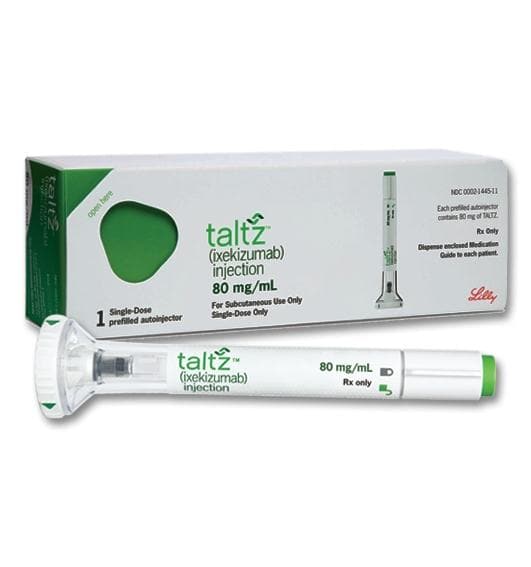
Eli Lilly’s Taltz can now compete on a level playing field with Novartis’ rival drug Cosentyx, after picking up a third FDA approval for ankylosing spondylitis.
Taltz (ixekizumab) – an interleukin-17 inhibitor previously approved for psoriasis and psoriatic arthritis – now has the same diseases on its label as class leader Cosentyx (secukinumab) which grew by almost a third to $1.65bn in the first half of the year and is now Novartis’ top-selling product.
Taltz is still playing catch-up in the market, but has been growing nicely and looks set to easily cross the $1bn blockbuster threshold this year.
First-half sales rose 65% to $606m, with demand growing strongly in the US as the drug continues to roll out in international markets. It has been growing fast despite being beaten to market by Cosentyx in both its other two indications, suggesting there is plenty of room in the market for multiple IL-17 inhibitors.
Around 1.6 million people in the US have ankylosing spondylitis, which affects the pelvic joints and spine and can cause chronic inflammatory back pain, stiffness, and impaired function and mobility, according to Lilly, which says only 15% of patients with the condition are taking biologic therapies.
Having more options could accelerate uptake of biologics in ankylosing spondylitis, and Taltz’ clinical profile – including a rapid onset of action and consistent activity over time – should position the drug well to capture growth in these patients, it says.
Taltz’s growth rate has been helped by expanding use of biologics in its approved indications, but the company reckons it is also winning market share from other biologic classes.
That includes TNF inhibitors and drugs in the IL-12/IL-23 inhibitor category – which includes Janssen’s Stelara (ustekinumab) – although Lilly has also suggested it may be eating into the market share commanded by Cosentyx.
The drugmaker has also just published data from a trial comparing Taltz to Janssen’s follow-up IL-23 inhibitor Tremfya (ustekinumab) in plaque psoriasis that it thinks could really help the competitive positioning of its drug. Tremfya has also been growing quickly since launch, bringing in $452m in the first half.
Meanwhile, the new approval also keeps Taltz ahead of some other new competitors, particularly AbbVie/Boehringer Ingelheim’s new IL-23 inhibitor Skyrizi (risankizumab) which AbbVie thinks can become a $5bn blockbuster despite the increasingly crowded field.
Skyrizi has been approved for psoriasis so far and has trials on the go in follow-up indications, including psoriatic arthritis and ankylosing spondylitis, and its commercial success will depend on how rapidly it can add further indications to its roster.




